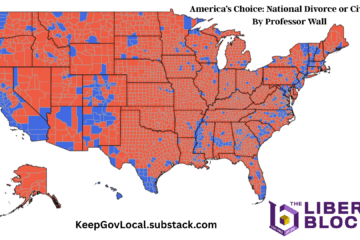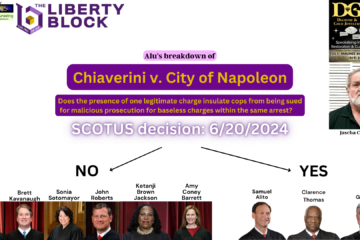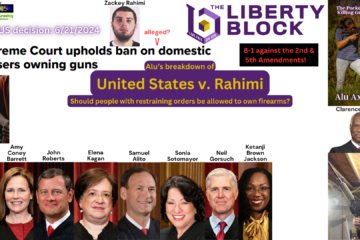This inspiring article was written by Mwesige Joram, a good friend of Daniel Behrman and a brother in liberty from Uganda. It was such an inspiring read that I had to share it. It is so interesting to see the similarities that Uganda and our union share – from mismanagement of funds, poorly run programs, and corruption, to the willingness of many people to trust the politicians to solve their problems, despite their poor track record. Please enjoy.
In our quest to break barriers to freedom and build and promote a free society in Africa, we are with time discovering and drawing the attention of more danger posed and done by the state. These powers are violating and throwing into the trench of history the principles of a free society and not letting man live a free life.
Our work of awakening the masses to free market ideas and libertarianism is also seen and dubbed as a Western threat to the status quo. The idea of a free society is encountering an entrenched dictatorship and its exploitative policies.
When we preach against huge government and political expenditures, it is a true threat to the state’s spending culture. In reality, the state implies it owns its citizens. The people are modern day slaves. The government and its politicians can legislate and impose taxes on people without restraint.
If I was to discuss the moral aspect of who benefits from these taxes, the government officials take a huge pie of the taxes collected in terms of salaries, privileges, and other emoluments. Citizens are dubbed part of the government, which is not true. This claim is asserted with no proper evidence. The impact of who belongs to the government is determined by who really benefits from the state’s power and by how much. Exorbitant taxes are imposed on Ugandans as state expenditures increase. The state exists because people’s wealth exists.
Getting to the matter of this article, the tax on land sales in Uganda was introduced by the state December 2021. Anyone buying or selling land above 10 million Uganda shillings ($2850 USD) must have a tax identification number (TIN). This TIN requirement when one is selling land is another form of cheating, meant to confiscate more of people’s wealth. The government is pushing its hand deeper into people’s wallets.
People have held the belief that government is a solution to many problems affecting society, yet government itself is a major obstacle and part of the problem. Government has no money or resources. What it has, it has gotten from its people. It doesn’t create wealth majorly; it redistributes wealth from the people who create it.
As a great lie for the socialist way, when an individual asks the government to do something for public benefit, he is asking the government to tax someone for his benefit. This is one of the reasons why we say “Taxation is Theft.”
To this end, a lot of state evil is going on in the world and Uganda is no exception. In fact, Uganda is a partner in this. The Uganda government is too big and has unlimited power, yet in our backward societies; this is seen as moral and important. The size and powers have become a burden to the economy.
The heavy weight and negative effects of such a regime are overly thrown to entrepreneurs and business owners through the draining taxes required to sustain it. Uganda is a country where the government orders the printing of cash from the Central Bank from thin air. Politics and maintaining such huge government expenses have always cost the economy and blessed it with inflation.
A government that has more than 80 costly ministers, 529 Members of Parliament, and numerous administrative units poses an incredible burden to the economy. I have always argued that administrative units are not economic units. They are not centers of wealth creation, and they are in fact centers of wealth outflows and tax redistribution to the less productive entities and individuals of the state.
The question is, how is wealth created? Who creates the wealth of the nation? It’s proper to argue that the expenditure-hands of the government are growing deeper into the pockets of our wealth.
The evidence is quite certain that the multiplier effect on the expense by individuals is far more productive than that of the state. The government investment and enterprises are full of inefficiencies that lead to less and poor production results for the economy. This is why we say the government should leave money in the hands of individuals. The government should get out of people’s pockets.
Government policies are counterproductive. They are negative and less additive to the economy compared to the private sector. When the government confiscates people’s money in the form of taxes, it is not invested. It is instead paraded for redistribution.
For quite some time now, I have seen the government try to regulate many things. This regulation comes with a cost that is counterproductive. Those who are employed in that line to enforce that regulation are paid.
What is not observed, however, is that those employed don’t create wealth in that chain. They are paid for implementing a law that doesn’t create value. Governments create employment out of thin air using other people’s money. They don’t create wealth. They redistribute the income from that created by others through taxation.
I recently wrote an article for Liberty International’s website, showing how the Ugandan government has numerous tax policies destroying the economy. The customs levy for import and export is uneconomical, employs costly people, reduces access to life saving technology, and reduces economic growth.
Today the government is coming up with more tax collection measures to capture more of people’s income through a requirement of TIN. This has been introduced to double tax the landowners.
This is in addition to the numerous exorbitant taxes paid by Ugandans both direct and indirect, on income, goods, and services. The requirement of a TIN when one is selling his or her land is trying to confiscate more of people’s wealth. This morally violates the principle of property rights.
We need to ask hard questions about the moral and economic impact of these ideas on the taxpayers. The attributes of government work have always disabled the wealth creation endeavors and curtailed economic progress causing poverty, unemployment, and misery for many people.
Governments have always fronted the excuse of promoting the welfare of the people at the bottom of the society; the poor. This in fact has shown to be ineffective and false. It is such a great lie.
The results show that it’s the government’s officials who gain from government tax programs. The numerous tax policies in Africa and Uganda are detrimental to the economy. They contribute to unemployment and poverty.
The tax burden by the huge state rests negatively on the incomes of several businesses and destroys them, thus creating unemployment and underdevelopment.
The fight to let people know how wealth is created and how it is being destroyed by big government and its policies is key. People must be free to do what they wish and the results of their labor should not be confiscated for the state programs. If it is taxed, it should be voluntary, since there is no clear benefit returned proportionally to the taxpayer.
The state has no better return on investment on this confiscated wealth. The government should restrain its hand from people’s pockets. People are not government property, and they must be free from government exploitation.
Uganda’s government is too expensive.
We can look at Premier Margaret Thatcher and President Ronald Regan as examples. They liberated their economies by limiting government regulations on businesses, reducing government expenditures, and liberalizing the economies.
Mwesige Joram
Libertarian Activist.



1 Comment
Deanne · February 9, 2022 at 3:19 pm
I don’t know how government positions are filled in Uganda, but presumably the ones making these decisions are elected. It is the same problem as here in the U. S. Why do people keep electing people who keep doing this to us?
There seems to be some mutation that takes place upon election, even among those who were for limited government before elected to office. They turn into “other” instead of part of society. I’ve heard that police officers are told they are part of an elite. Maybe elected representatives have a similar workshop, telling them they are now part of a special group that is over everyone else.
Comments are closed.